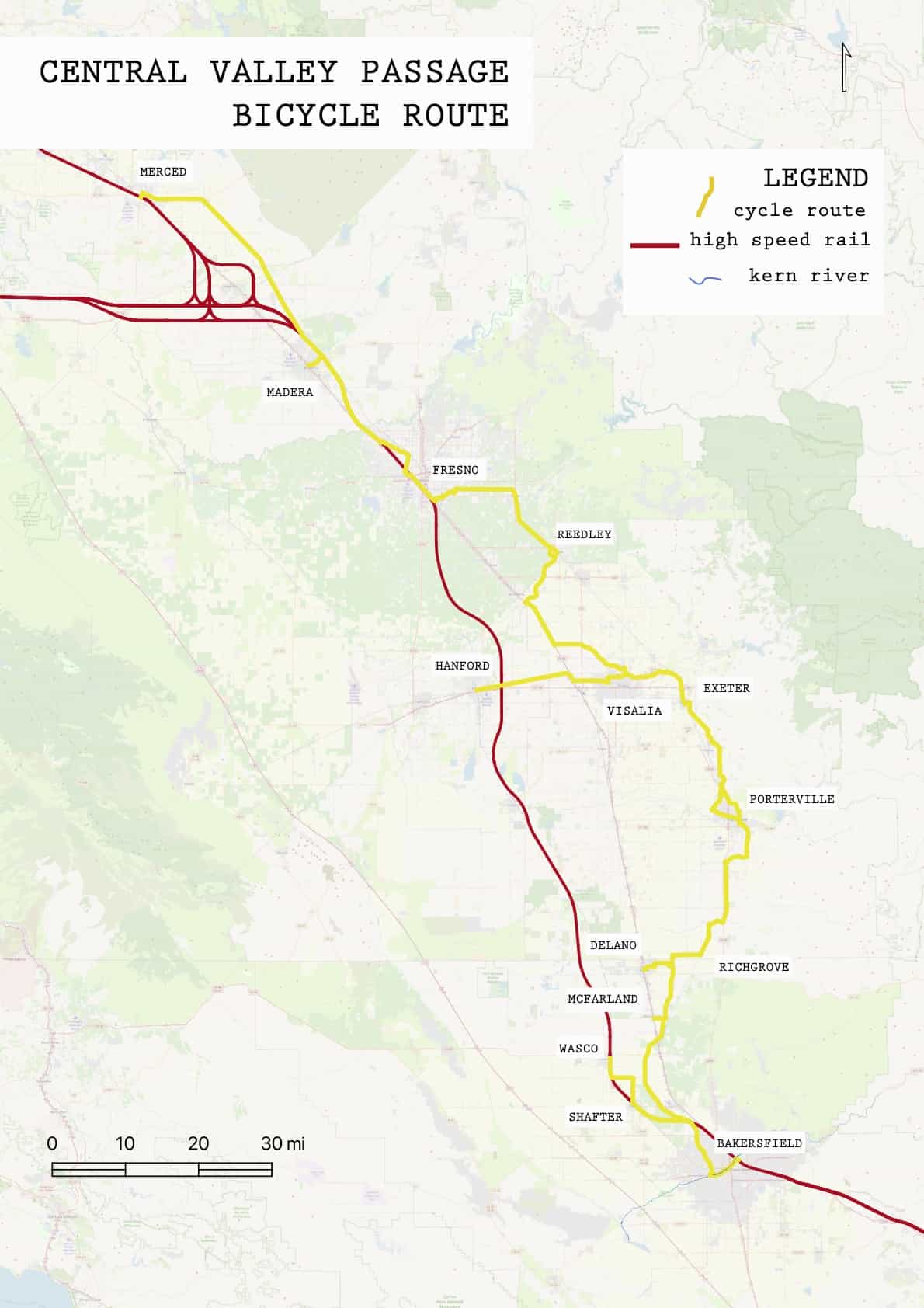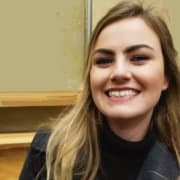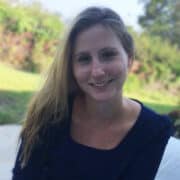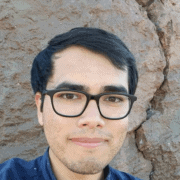Forest Barnes Moves from CalBike to SFMTA
For the past two years, Forest Barnes has led CalBike’s work to bring better biking to the Central Valley. Funded by a Caltrans grant, the project team created a plan to make the planned High-Speed Rail (HSR) stations accessible to people walking and biking, drawing a three-mile radius around each station and proposing a network of great bike lanes and safe crossings to enable people to reach HSR. They also provided assistance to the City of Bakersfield to launch its first bike-share program. Forest has successfully wrapped up that project and is moving on from CalBike to the San Francisco Municipal Transportation Agency (SFMTA) as a regulated mobility planner.
Forest’s work while at CalBike will have a lasting impact. His team’s recommendations will vastly improve the safety and comfort of people in disadvantaged neighborhoods near the downtowns of Fresno, Bakersfield, and Merced.
Importantly, the Central Valley Bikeways Project recommendations relied on a novel tool to analyze how a specific improvement affects the connectivity of destinations throughout the whole city. The tool shows how fixing an intersection at a key chokepoint might be more important to connectivity than a new path at the edge of the city. CalBike plans to promote this type of analysis for future active transportation funding decisions. It’s important for officials to build truly connected, low-stress networks instead of attractive but disconnected paths that don’t help bike riders reach key destinations such as work, school, or shopping.
The project also evaluates bicycle parking options at each of the stations, and proposes an exciting long-distance bicycle route, in conjunction with the construction of the new High-Speed Rail (HSR) stations. Once implemented, these plans will create a connected, low-stress network for residents to get to key destinations in Central Valley communities.
The final element of CalBike’s Central Valley Project, a bike-share system for Bakersfield, was held up by COVID but is currently being finalized. CalBike will continue to work with regional agencies, governmental bodies, and our allies at Bike Bakersfield to bring more safe, active mobility options to Central Valley communities.
Now, as the project comes to a successful close, Forest is moving on. He will join the San Francisco Municipal Transportation Agency (SFMTA) as a regulated mobility planner. Forest will bring his expertise in urban mobility to the management of bike and scooter share systems in San Francisco.
Bringing connected bikeways to Central Valley communities
“I really appreciated getting to serve Bakersfield in particular, as well as the Central Valley,” Forest said. As a Bakersfield native, he was excited to use his active transportation planning skills in service of his hometown. The Central Valley Project also developed bike plans for Fresno and Merced, as well as a long-distance bike route. Forest’s proudest accomplishment, however, was the low-stress bike network plan for Bakersfield. The plan hasn’t been adopted yet, but he hopes it will open the door for a sizable investment in biking and walking in the Central Valley.
“Forest has been an indispensable part of our team, further connecting CalBike to the richness of the Central Valley and leading the expansion of safe biking in the region,” said Jared Sanchez, CalBike Senior Policy Advocate and another member of the Central Valley Project Team. “Forest’s personal connections to Bakersfield helped provide needed nuance to proposing low-stress connected bike networks to the city.“
Asked what he liked best about his time at CalBike, Forest said, “I absolutely appreciated the team most of all. I appreciated being at an advocacy organization.” He plans to stay connected and attend the next California Bicycle Summit. He added, “I feel extremely blessed to have found this job that combined so many of my interests.”
CalBike is excited to continue to work with Forest in his role at SFMTA.


 Alexandra is currently a master’s student at UCLA studying urban planning with a concentration in transportation policy. Her work has included studying ways to empower women bike riders. As a fierce advocate for equitable active transportation practices, she says working for CalBike is her dream job. Her role on the team is research and design of the long distance bike route portion of the Central Valley Active Transportation Planning Project. Before joining CalBike, Alexandra was a Peace Corps volunteer in West Africa and she is now a California transplant. In her free time, she enjoys biking the streets of Los Angeles, baking bread and woodworking.
Alexandra is currently a master’s student at UCLA studying urban planning with a concentration in transportation policy. Her work has included studying ways to empower women bike riders. As a fierce advocate for equitable active transportation practices, she says working for CalBike is her dream job. Her role on the team is research and design of the long distance bike route portion of the Central Valley Active Transportation Planning Project. Before joining CalBike, Alexandra was a Peace Corps volunteer in West Africa and she is now a California transplant. In her free time, she enjoys biking the streets of Los Angeles, baking bread and woodworking. As an urban planner, Rosy is interested in disrupting auto-centric design and promoting social equity through active transportation planning. While getting her Master’s in Urban and Regional Planning from UCLA, Rosy interned for LA City Planning. She wrote her capstone project on pedestrian-oriented design interventions to freeway underpasses. At CalBike, Rosy is excited to work on the Central Valley Bikeways Project and to promote pedestrian-friendly design around planned HSR Stations. Since freeways and on-ramps present access hurdles near the HSR stations, Rosy’s experience overcoming these types of challenges will be particularly helpful.
As an urban planner, Rosy is interested in disrupting auto-centric design and promoting social equity through active transportation planning. While getting her Master’s in Urban and Regional Planning from UCLA, Rosy interned for LA City Planning. She wrote her capstone project on pedestrian-oriented design interventions to freeway underpasses. At CalBike, Rosy is excited to work on the Central Valley Bikeways Project and to promote pedestrian-friendly design around planned HSR Stations. Since freeways and on-ramps present access hurdles near the HSR stations, Rosy’s experience overcoming these types of challenges will be particularly helpful. Peter is a recent urban planning graduate from UCLA’s Luskin School of Public Affairs, where he studied the interaction between race, class, and power in transportation finance policy and planning. This lens will bring an important focus to the CalBike’s Central Valley Bikeways Project. His interest in urban planning is rooted in a combination of growing up in auto-dependent Orange County and a study abroad trip to Russia, where he lived in St. Petersburg and traveled to Kyiv and Moscow. Peter lives in Los Angeles and bikes almost everywhere he needs to go, as well as recreationally.
Peter is a recent urban planning graduate from UCLA’s Luskin School of Public Affairs, where he studied the interaction between race, class, and power in transportation finance policy and planning. This lens will bring an important focus to the CalBike’s Central Valley Bikeways Project. His interest in urban planning is rooted in a combination of growing up in auto-dependent Orange County and a study abroad trip to Russia, where he lived in St. Petersburg and traveled to Kyiv and Moscow. Peter lives in Los Angeles and bikes almost everywhere he needs to go, as well as recreationally. 
